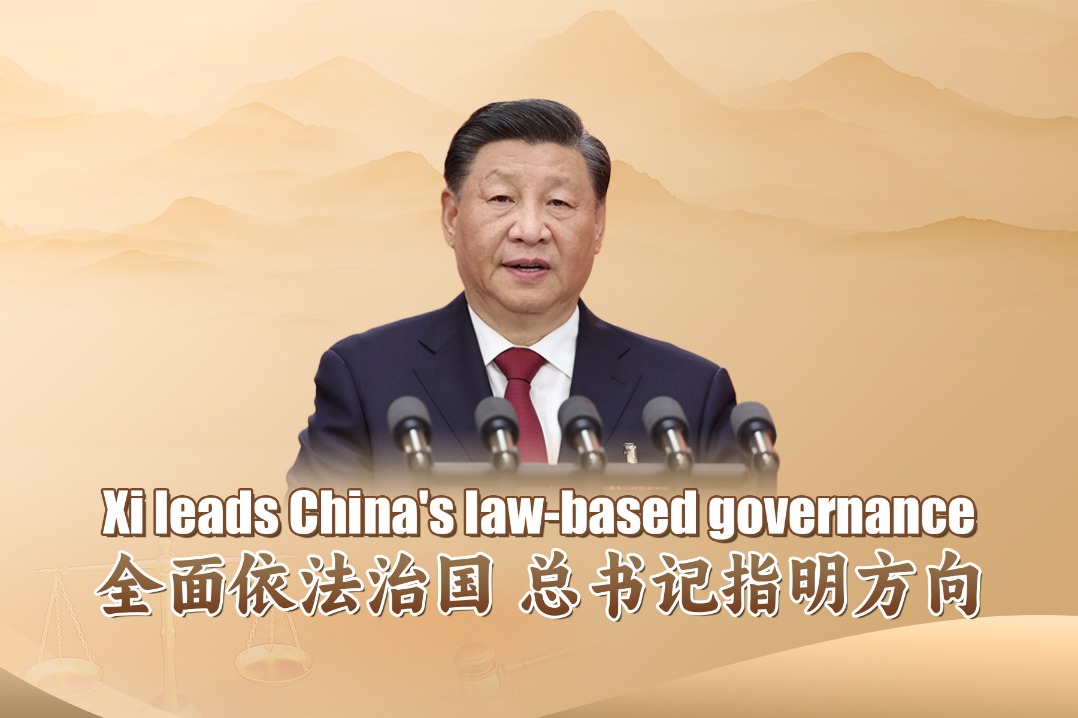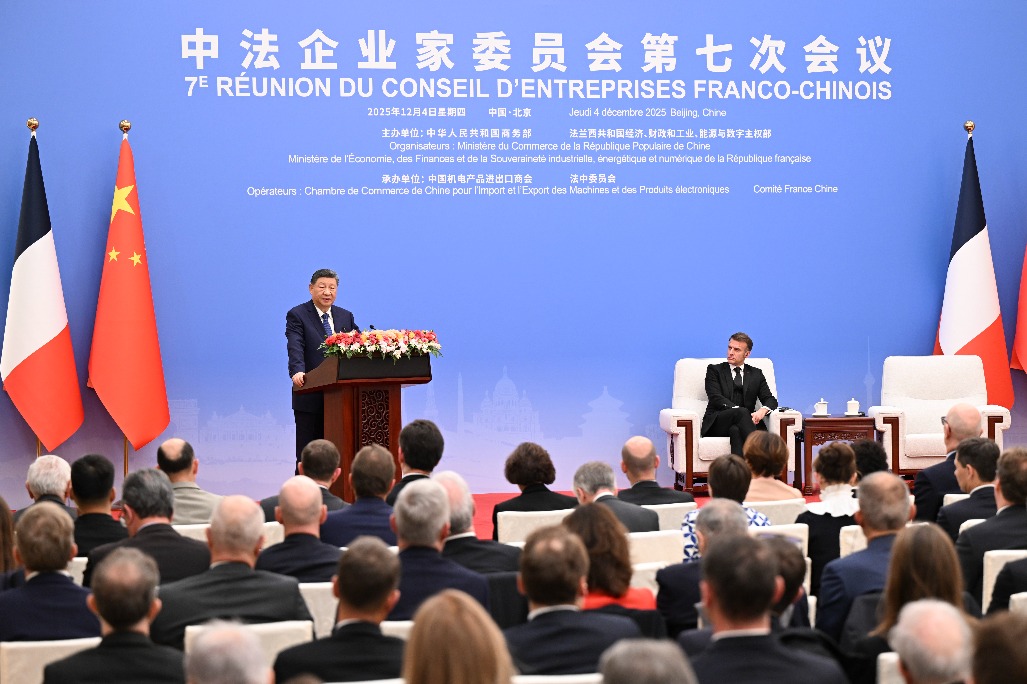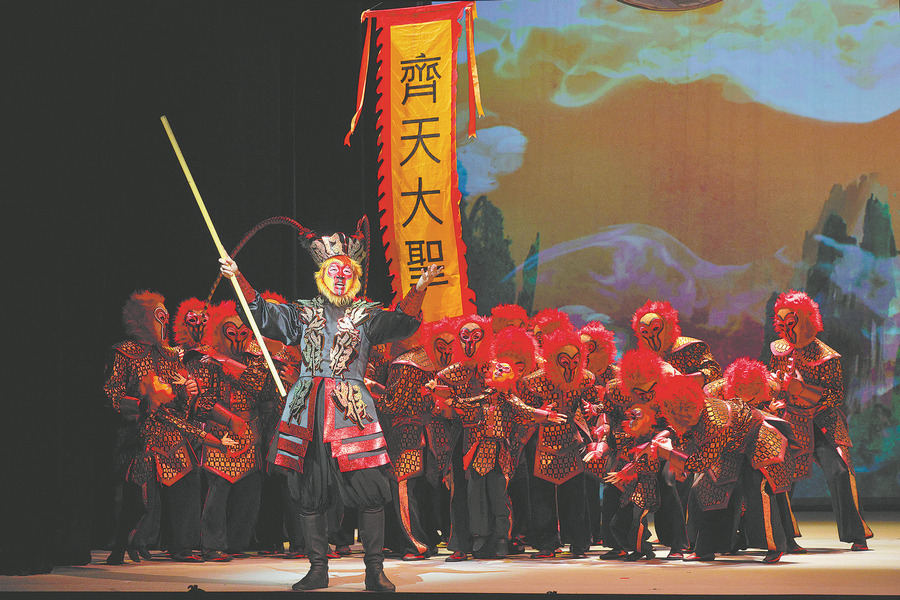Lou Yulie: What kind of intellectual resources does the Chinese culture provide in response to climate change?
Ecns.cn | Updated: 2023-07-17 15:59

Fishing boats sail near the Xinying port in Lingao County, Hainan Province. [Photo/China News Service]
Climate change is a severe challenge of common concern globally. At the 75th session of the United Nations General Assembly in September 2020, President Xi Jinping announced that China would aim to reach peak emissions before 2030 and achieve carbon neutrality before 2060.
On the other hand, climate-related issues have also become an important arena for Western countries to get a bigger say and agenda setting authority in global governance, and even to impose “green containment” on developing countries. How is the increasingly serious challenge of climate change viewed from the perspective of Chinese traditional culture? Why can the revival of humanistic spirit and complementation between eastern and western cultures help overcome and get rid of the self-alienation of human creativity? Mr. Lou Yulie, a famous scholar of the history of Chinese philosophy and professor at the Department of Philosophy and the Academy of Chinese Studies of Peking University, had an exclusive interview with the “W.E. Talk” of China News Service and gave us the answers.
CNS: The Chinese culture has always valued harmony between man and nature, and it has been our constant pursuit that man and nature could live in harmony with each other. So what is the view of nature in Chinese culture?
Lou Yulie: Chinese people attach great importance to the relationship between man and nature. It is a humanistic view of nature, which observes and understands nature from the relationship between man and nature. Everything in Chinese culture starts from man. It puts people first and emphasizes self-consciousness and self-discipline of man. It believes that only in this way can we deal with the relationship between man and nature well.
The idea that human beings are an integral part of nature took shape as a way of thinking in the pre-Qin period, especially during the Spring and Autumn and the Warring States period. It holds that man and nature are united as one. Human beings live in the whole natural environment and cannot be separated from the universe. This idea is actually about the relationship between the whole and the individual. This is of great significance.
A particular point is the relationship between man and heaven. Living between heaven and earth, man is different from ordinary things. First of all, in the pre-Qin period, many scholars, especially Xunzi in the late Warring States Period, clearly talked about the differences between man and other lives. He put forward the concept of “group”, that is, human beings are “social” lives and organized groups, which can control and dominate other lives. Second, human beings have righteousness. “Righteousness” means being able to distinguish between the right and the wrong, that is, righteousness is appropriateness. Human beings know what they should do and what they shouldn’t. The third point is more important, I believe: Man is the most highly endowed of all creatures with great initiative. Therefore, human activities play a role in the world that is very different from other lives.
CNS: How should we understand the relationship between man and heaven and earth better?
Lou Yulie: Chinese culture has made a very important conclusion about the relationship between man and heaven and earth, that is, man is the heart and mind of heaven and earth. This sentence comes from the Book of Rites, which is about the position of man between heaven and earth. Heaven has its time to produce all things, earth has its resources to support all things, and men have their own method in governing all things between heaven and earth. Men’s words and deeds are related to their hearts. We do and say what we think. Men’s thoughts and actions also affect heaven. As the heart and mind of heaven and earth, men should be righteous so that they can live in harmony with nature. Evil thought will cause contradictions and conflicts between heaven and earth and man.
Chinese people developed such an idea that human beings are an integral part of nature in ancient times. This is great and has profound influence. It established human beings’ understanding of themselves from the very basis. Therefore, I say that Chinese culture is people-oriented. To know the objective world of all things, we must first know men. Only after we have mastered the characteristic that men live in the universe can we deal with the relationship between man and all things well.
Man has the initiative to handle this relationship well. Human beings are self-conscious and self-disciplined, while other lives are passive and spontaneous and they cannot change the universe. On the whole, human beings cannot change the laws of nature either, and the weather wouldn’t change for human preferences. But the impact of human behavior on nature far exceeds the life of nature. Therefore, the idea that human beings are an integral part of nature is a very important view of nature and life developed by Chinese people.
Moreover, the idea that human beings are an integral part of nature also involves ethics. The Chinese believe that the moral principle of being a man is learned from the universe, and men turn the spontaneous behavior of all things in the universe into the conscious behavior of human beings, which is a sign that human beings break away from the barbarism of animals and create civilization. The core of the word “civilization” is the self-consciousness and self-discipline of man.
CNS: Chinese civilization has been challenged by extreme climate for many times. Has the Chinese culture or its view of nature ever been adjusted in history?
Lou Yulie: I don’t think there was any major adjustment. It has been consistent. We must master one of the core concepts in Chinese culture—zhong (中), or “neutrality” literally. It has many meanings. Here I mainly talk about it from two aspects. One is balance. Chinese culture believes that “neutrality” is the foundation of all things in the universe. There are times of imbalance and asymmetry among things in the universe, but they will end up with “neutrality”. You cannot let your desire go too far. This is one of the meanings of being “neutral”.
Another meaning is “inner”, which is opposite to “outer”. For example, in response to COVID-19, Chinese people depend on inner strength and resources and resist the virus from the perspective of man’s self-improvement and protection. This is a very important concept as it holds that the most fundamental point for a man is self-improvement. Of course, there is no denying that we can also take external auxiliary means to resist it. This is also a people-oriented perspective.
CNS: So, what do you think are the characteristics of China’s view of nature today?
Lou Yulie: I think our present view of nature is more influenced by western culture. We view problems with the western scientific thinking and separated method and fail to see the differences between the whole and the parts. The whole and the parts are correlative and inseparable. This point is usually neglected. But it is very important.
With such thinking influenced by western culture, people focus too much on the fine division of problem parts. In fact, viewing problems from the whole is more important, and only in this way can we solve the problems. This is also a very important concept in Chinese culture.
CNS: As China is influenced by western culture too much today, what adjustments do you think should be made in the future?
Lou Yulie: I think we should highlight the view of nature in Chinese culture. We should notice that its holistic view and people-oriented view are very important. I think the relationship between people and society, as well as the body-mind relationship of people themselves will be greatly improved. We should not focus only on the conflicts between things. There is mutual assistance too. As is often said in Chinese culture, there is mutual growth and mutual restraint between them. Chinese culture holds that all things interact in a generative or destructive relationship.

CNS: Entering the era of industrial civilization, human beings have moved faster to grab natural resources, and extreme weather events occur frequently. What’s your take on the challenges brought by climate change?
Lou Yulie: I think we should find a fundamental solution to these problems. Human beings should examine themselves. It is the excessive desires of human beings that lead to these problems. This is also related to the development of science and technology. With more and more means and stronger science and technology, human beings believe they can do whatever they want to. The most fundamental point is self-examination and self-restraint, otherwise it will be very difficult to solve the problems.
I have said many times that the development of science and technology must be guided by humanistic thought, and we must know what should and should not be developed. If the development is beneficial to mankind, we can do it; if it is harmful, it doesn’t have to be developed or even to be created. Only by alleviating the desires of human beings can we change the current situation.
In this respect, I think Chinese culture is indispensable to humankind. Chinese culture pays more attention to people, and people should be the masters of things. The point is not material civilization or scientific and technological civilization, but self-consciousness and self-discipline of human beings.
CNS: Recently, some western countries say that China and India should be responsible for addressing climate change and they put pressure on developing countries. What’s your take on the disagreement and cooperation space between the East and the West?
Lou Yulie: I think this is completely benefit-driven. They have already gained benefit and are unwilling to let others gain benefit. They have accumulated experience in development, but don’t want to see others become rich and develop.
As models, they should give help to others; in particular, the strong should help the weak. This is the real advanced civilization. It’s not right for the strong to bully and manipulate the weak.
Chinese culture recognizes that the difference between animals and human beings is that animals compete and the weak are the prey of the strong; while human beings help each other and the strong help the weak. Such idea should be widely publicized. Of course, many westerners have recognized the importance of international climate cooperation and urge their governments to take action. But I think it is very difficult to find a fundamental solution.
CNS: There have been many difficulties in cultural exchanges between China and the West in recent years. What’s your suggestion on the cultural dialogue between China and the West?
Lou Yulie: There are many differences on culture and thinking between China and foreign countries, but communication is necessary. The most important point is inclusiveness and respect. It is impossible to force each other to make changes. Instead, we should influence them through our daily life practice.
Looking back on history, we can see that the most important way of cultural exchanges along the Belt and Road was to influence each other through the life of merchants. Chinese and foreign cultures are different in values, outlooks on life, ways of thinking and many other aspects. But these are not the problem. They can coexist.
The power of role models is infinite. We just show others how we live. We advocate saving food and protecting nature. Example is better than precept. We just do what we should do and let the outside world see how China handles the relationship between man and nature.
























